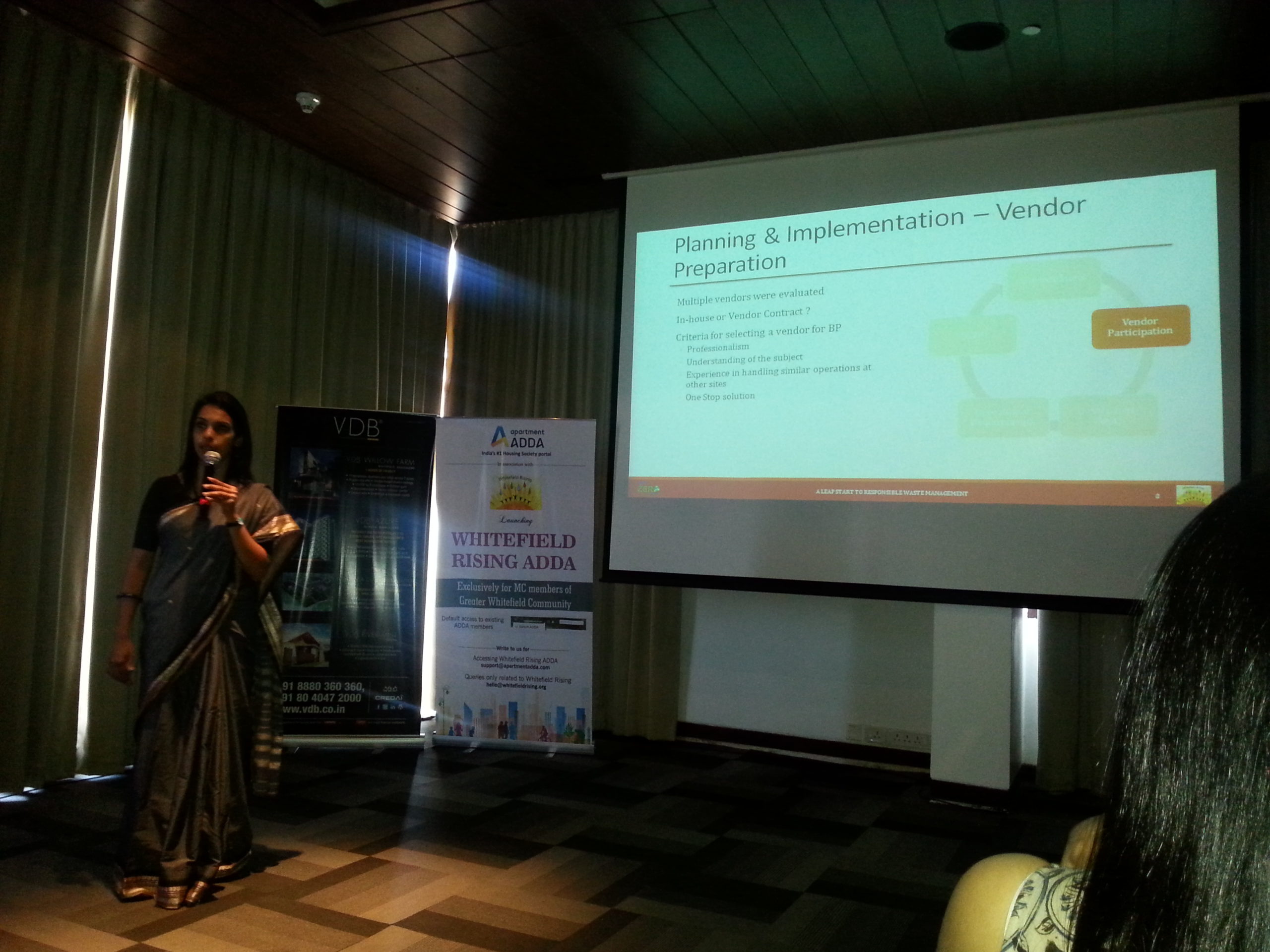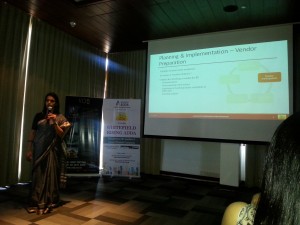How to turn a mountain of waste into a molehill?

What exactly is the garbage problem and why do we need to act?
What is waste segregation?
Why do we need to segregate waste?
Why do we need to segregate waste at source of waste generation?
What are the tools that can help and guide communities to segregate?
How can communities compost on-site even with space and budget constraints and why is composting on site the best solution?
What are the different composting solutions?
Why is decentralized waste management the best way to go?
What can individuals do besides segregation to help reduce the garbage they generate?
The Solid Waste Management event organised by Whitefield Rising at Alila Hotel on April 19th had over 45 registrations from new communities in Whitefield who wanted to start waste segregation at their end. Solid Waste Management has been a buzzword in the city for a while now. BBMP has been doing its bit but it is clearly not enough. The residents need to take ownership of the waste they generate and also help manage it. Ideally, only 5-10% of the generated waste should go into the landfills – the rest should either be composted, reused or recycled.
While the regulations have been in place since 2012, there are still communities who do not segregate their waste. Even those who do segregate at source don’t know the right vendors to give the waste to. This event was to provide a “leap start” to such communities, arm them with needed information, so they are better prepared to do the work in their communities.
The brainchild of Whitefield Rising who was the event organizer, gave an overview of the ground reality, current garbage situation on the ground in Bangalore and the havoc caused by mixed waste and landfills.
To answer these challenges, various solutions were presented by eminent speakers. Malini Parmar from 2Bin1Bag spoke about the BBMP law mandate for Bulk Generator and 3 levels of segregation. She stressed on the importance of communities handing over their waste to an authorised vendor. Sahaas Zero Waste Solutions spoke about decentralized processing, the uniques challenges and opportunities in India for waste management and the advantages of including the rag pickers into the economy by providing them with safe working conditions for micro segregation of dry waste. Savita Hiremath (SWM Round Table) stressed the importance of composting locally at community level, while dispelling myths about composting and describing different solutions to suit differing requirements and constraints (space, budget, labour etc.). Marwan from Hasiru Dala as well as SWM experts from Whitefield Rising also provided insights into segregation at source and its backend processing.
Three communities from Whitefield-Balaji Pristine, Windmills of the Mind and Prestige Ozone spoke about the challenges and how they implemented SWM in their community and achieved the desired results.
All in all, a very enlightening morning that brought perspective into what each one of us can do to reduce waste going towards the landfill.
Clement, an attendee said `SWM Team @ whitefieldrising – It was a fantastic event!! Very well organised and the passion was felt by the audience!! Great step to move to 100% segregation at source in our neighbourhood!’
Click here to see the session presentations and videos.


A big thank you to Ketki and the other organizers of Net zero waste event at Alila. This was indeed a big “wake-up-call” for Whitefield residents and communities. Thank you once again for all for the time and effort spent for organizing the event.
Regards,
Nandini Dasgupta,
Renaissance Jagriti.
Whitefield.